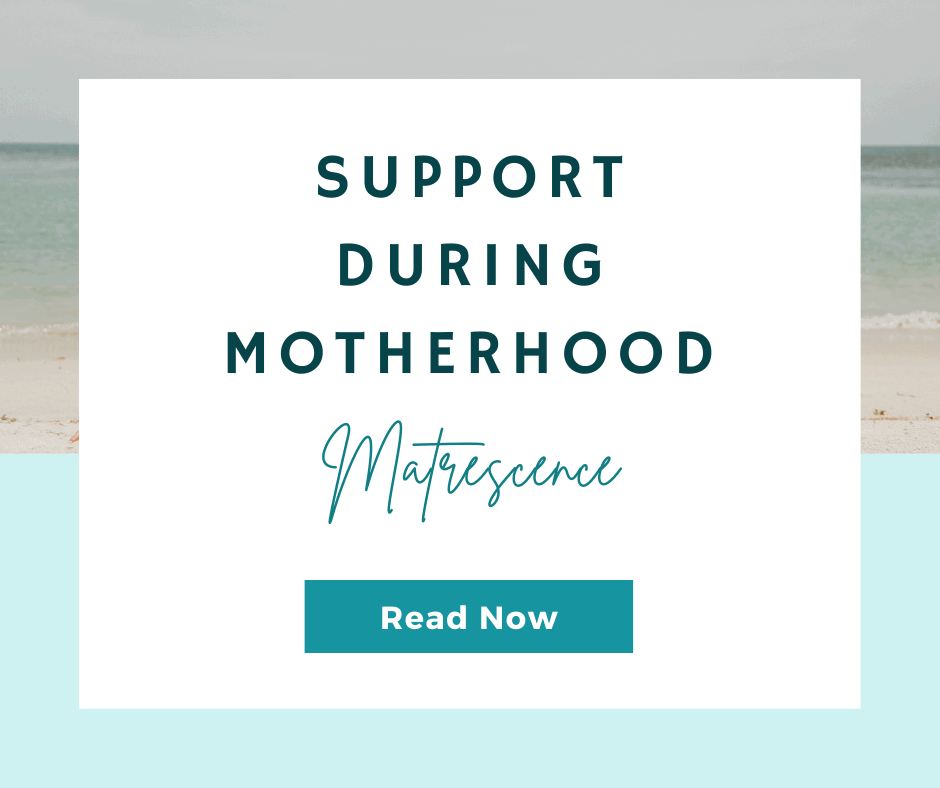

Matrescence Support During Motherhood
The transition into motherhood embodies some of the most monumental physical and psychological changes a woman will ever experience – hence the need for additional support during motherhood. Your body will change, you will likely need to sacrifice your time and social life, and you will need to learn to embrace patience and a new sleep schedule. Yet, as soon as a new mother gives birth, she is confronted with unrealistic societal pressures and expectations surrounding her new role. There is an unwavering notion that becoming a mother is the happiest and most fulfilling achievement in a woman’s life. Whilst having a newborn is typically a positive and joyful experience, there are also many challenges associated with motherhood which are often overlooked. Many new mothers may also feel too guilty or ashamed to admit their struggles as a result of this internalised expectation that they must be fully functional, strong and happy all of the time in order to be a good mother.
For this reason, the term ‘Matrescence’ was developed.
It recognises the transitional period from woman to motherhood with the intention of normalising, as opposed to pathologizing, the mixed emotions surrounding the physical, mental, emotional and social changes a new mother will typically experience. Whilst postnatal anxiety and depression are very real, it is important to acknowledge that not every negative emotion following birth indicates a mental health issue. In addition to hormonal changes associated with this transition, many new mothers will also experience a massive shift in their identities as relationships and priorities change in a very short window of time. Many women will begin to think they are parenting wrong when their preconceived idea of motherhood does not fit the reality.
If you are a mother and are struggling to mitigate the transformative experiences during this period, rest assured you are not alone. In order to embrace these changes and find support during motherhood, it is important to:
Reflect on your expectations:
It can be easy to fall into the trap of comparing yourself to unrealistic parenting expectations when we live in a world surrounded by mum-influencers glamourising their experiences of motherhood online. It is important to set your expectations based on your unique values and understand that you are doing the best you can.
Make time for yourself:
It can be overwhelming trying to adjust to a new routine, especially when babies have no awareness of time. However, it is important to schedule some time for yourself as you deserve time to engage with your own hobbies and interests.
Give yourself time to grief:
As mentioned, becoming a mother often means sacrificing your ‘me’ time, regular routines and social life. It is really important to reflect on these losses in order to embrace this new period in your life. Whilst there are losses, there are also many new gains associated with motherhood including increased family time and personal growth.
Seek professional support:
Talking to someone who understands the challenges of becoming a Mum and gaining support during motherhood can be very useful if you feel you need guidance and a place to explore your mixed emotions. Taylor Richards is a psychologist at Positive Mind Works who has a special interest in assisting new mothers during Matrescence.
Navigating motherhood is a challenging time and it is important to remember that this ambivalence is a normal part of the process. It takes time to adjust to your new role however, if you are struggling and feel overwhelmed please do not hesitate to reach out to a member on our team and we can organise some professional support during motherhood for you. Click here to book online or give our friendly reception team a call on: 1800 327 477 (AU) / 0800 327 477 (NZ)

